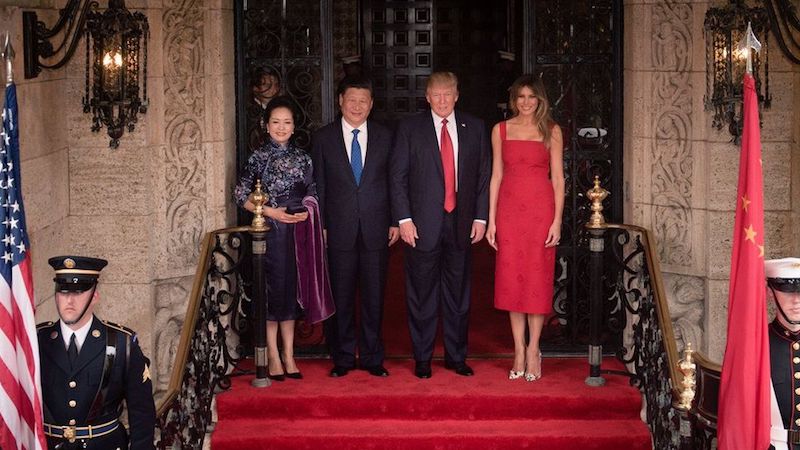A US withdrawal from the Paris climate agreement would unleash a wave of international anger, delegates at climate talks in Bonn have told Climate Home.
As the White House postponed a meeting planned for Tuesday to decide its stance on the pact, diplomats redoubled warnings against pulling out.
Chai Qimin, director of international cooperation at the Chinese government-funded National Centre for Climate Change Strategy and International Cooperation, raised the prospect of retribution spilling over into other international forums, such as the upcoming G7 and G20 meetings.
“Definitely it will impact on other diplomatic arenas, already on G7 and G20, the Major Economies Forum as well,” he said. “President Xi [Jinping] and our ambassador to the United Nations have said several times that withdrawing from the Paris Agreement is irresponsible, which will harm the mutual trust in the multilateral mechanism.”
The G20 and G7 are critical to US president Donald Trump’s anti-globalisation agenda. The US has had statements against protectionism watered down in pre-G20 talks, as Trump attempts to convince trade partners to negotiate directly with the US.
Report: US sends “much smaller” team to climate talks in Bonn
Trump’s White House is divided over the climate accord, with advisors reportedly vying for the US president’s ear. His spokesperson promised a final decision before the G7 leaders meeting on 26 May.
Under Barack Obama, the US was a key broker of the Paris agreement. It helped to secure broad participation from developing countries with promises of billions of dollars in financial aid.
In his budget proposal, Trump is seeking to axe an outstanding $2 billion pledge to the Green Climate Fund.
A withdrawal from the agreement altogether would amount to a further, more grievous breach of trust, said Ethiopian diplomat Gebru Jember Endalew, head of the 48 least developed countries negotiating group.
“Of course it’s a betrayal, to be honest,” said Endalew. “At this stage when most of the political leaders are actively engaged, they are well aware of the issue. So, I feel that if the US withdraws, it’s a betrayal to the global community – especially the least developed countries and the most vulnerable groups of countries.”
“The diplomatic consequences of the US pulling out of the Paris Agreement cannot be overstated,” said a negotiator from a small island state, speaking on condition of anonymity.
“Every leader stood up in Paris and pledged to transform their economies, and every part of their governments are now engaged in that effort… Every conversation with the US at every level would therefore be touched by a decision to withdraw and the ill feeling that it would generate.
“US global leadership, and the US economy, would be the biggest victims. It simply makes no sense, especially at a time when the US needs all the new jobs it can generate, and all its allies to be working together.”
The US’ former lead climate negotiator Todd Stern, writing in the Washington Post on Monday, said leaving the deal would be an “act of diplomatic malpractice” and erode the diplomatic capital available to Trump and his secretary of state Rex Tillerson.
Weekly briefing: Sign up for your essential climate news update
“I do think that there’s going to be repercussions,” Paula Caballero, director of the World Resources Institute climate programme, told Climate Home. If he were to announce a withdrawal before the G7 summit begins in Sicily, just a week after this round of climate talks ends, Trump would find himself confronted with incensed and uncompromising leaders.
“I think that it’s a mistake to think that international climate diplomacy is somehow isolated and an environmental issue. It’s gone completely mainstream,” said Caballero, who previously led climate negotiations for Colombia. “I haven’t read the Art of the Deal [Trump’s bestselling book], but I’ve been negotiating long enough to know that what you bring to the table is your credibility. This undermines the US’ standing, stature and credibility.”
Caballero said US influence in the developing world, where it has been engaged in a soft power struggle with China, would be diminished.
“Now climate change is about more than the environment,” said Endalew. “It’s environment plus. It’s more on trade, technology and other climate diplomacy issues as well. And countries all over the world are now just bringing the climate change agenda as part of their foreign policy.
“So US will definitely lose its leadership role in this process and of course it’s a big betrayal and I think it will be disadvantaged from a moral point of view as well. Because they have been given a second time to lead the process. If they leave that, I think they will not have any excuse for that.”
Karl Mathiesen is attending the Bonn climate talks. Follow him on twitter @karlmathiesen and email tips to [email protected]
NOTE: The headline originally read “China warns Trump: leaving Paris accord risks bad deals at G7, G20”. This has been corrected. Chai does not speak for the Chinese government.
